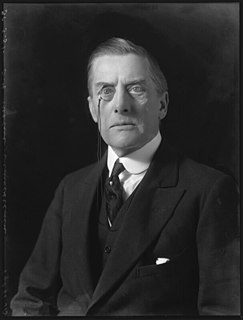A Quote by Gaetano Salvemini
In actual
fact, it is the State, i.e., the taxpayer who has become responsible
to private enterprise. In Fascist Italy the State pays for the
blunders of private enterprise Profit is private and individual.
Loss is public and social.
Related Quotes
The corporate State considers that private enterprise in the sphere of production is the most effective and useful instrument in the interest of the nation. In view of the fact that private organisation of production is a function of national concern, the organiser of the enterprise is responsible to the State for the direction given to production.
The quickest and surest way to production, prosperity, and economic growth is through private enterprise. The best way for governments to encourage private enterprise is to establish justice, to enforce contracts, to insure domestic peace and tranquility, to protect private property, and to secure the blessings of liberty including economic liberty - which means to stop putting obstacles in the way of private enterprise.
[I believe in] the throne...parliamentary institutions...private enterprise and individual opinion against the socialization of the state...equity in the distribution of public burdens and strict maintenance of public faith with the creditors of the state [and] a fresh guarantee of peace by an alliance with France and...Belgium for the defence of our common interests against unprovoked attack.
There can be no freedom of the individual, no democracy, without the capital system, the profit system, the private enterprise system. These are, in the end, inseparable. Those who would destroy freedom have only first to destroy the hope of gain, the profit of enterprise and risk-taking, the hope of accumulating capital, the hope to save something for one's old age and for one's children. For a community of men without property, and without the hope of getting it by honest effort, is a community of slaves of a despotic State.
The history of the welfare state is the history of public enterprise pushing out private organization. The impact was largely unintentional, but natural and inevitable. Higher taxes left individuals with less money to give; government's assumption of responsibility for providing welfare shriveled the perceived duty of individuals to respond to their neighbors' needs; and the availability of public programs gave recipients an alternative to private assistance, one which did not challenge recipients to reform their destructive behavior.

































